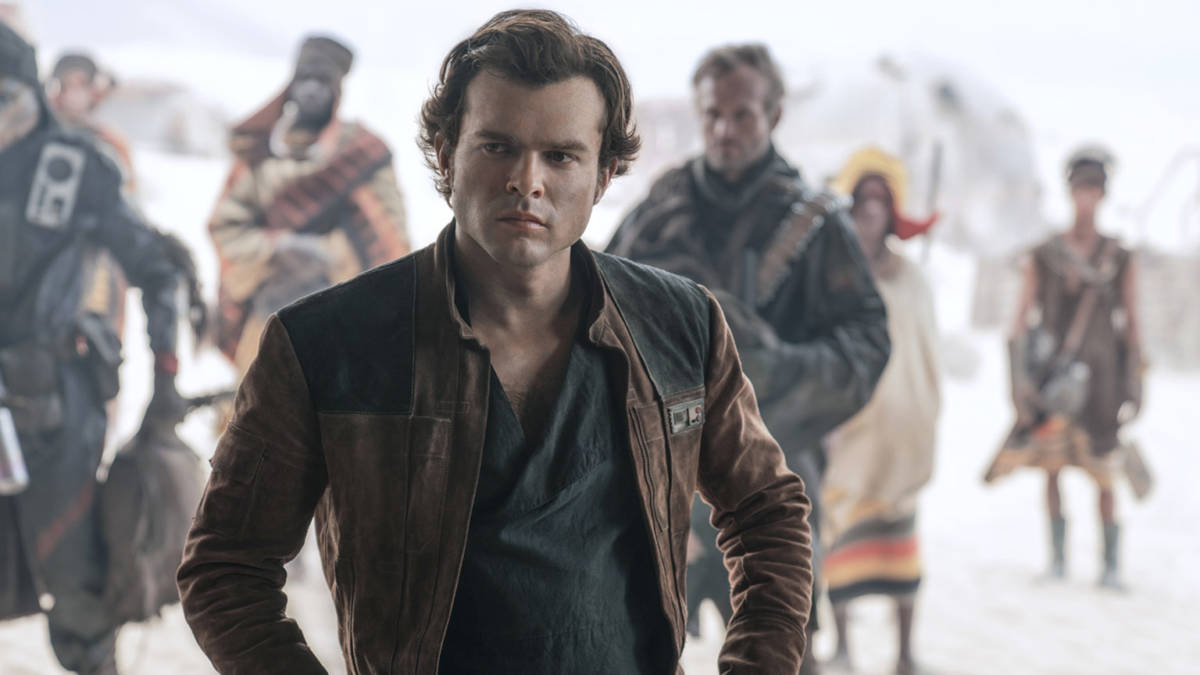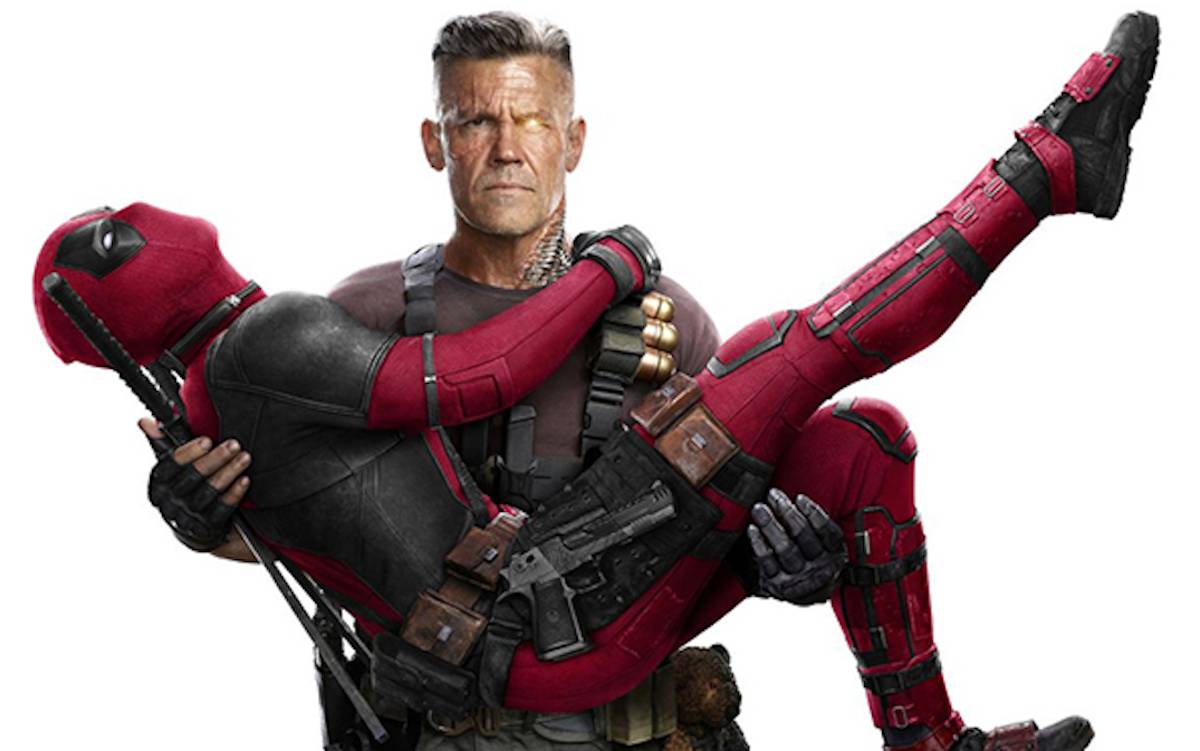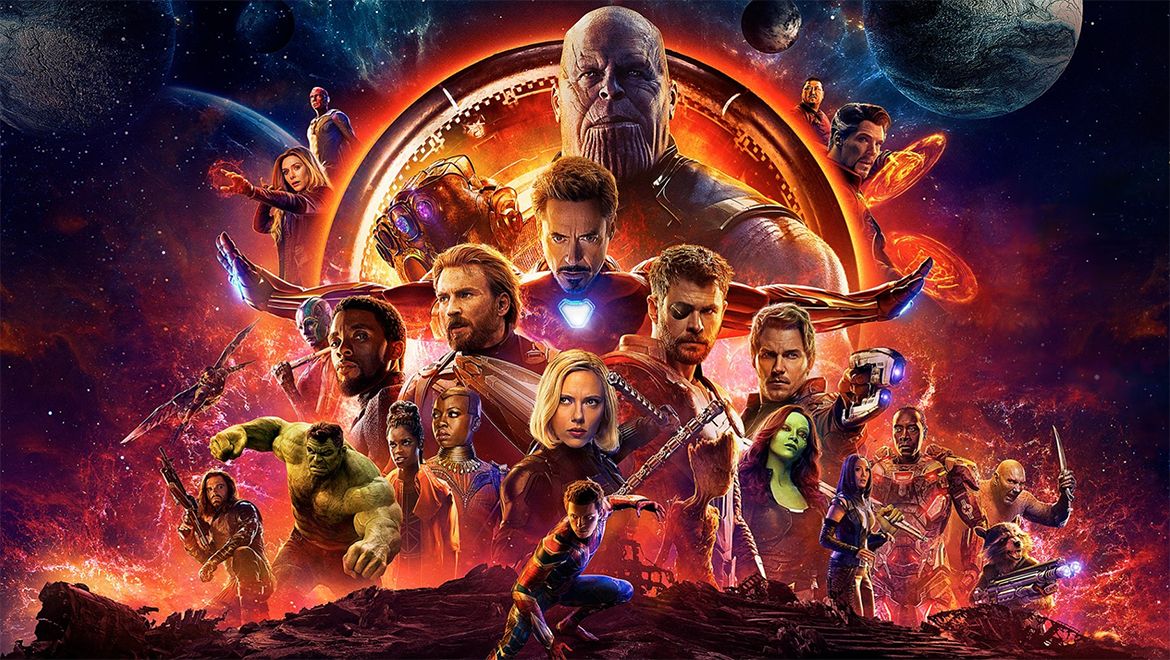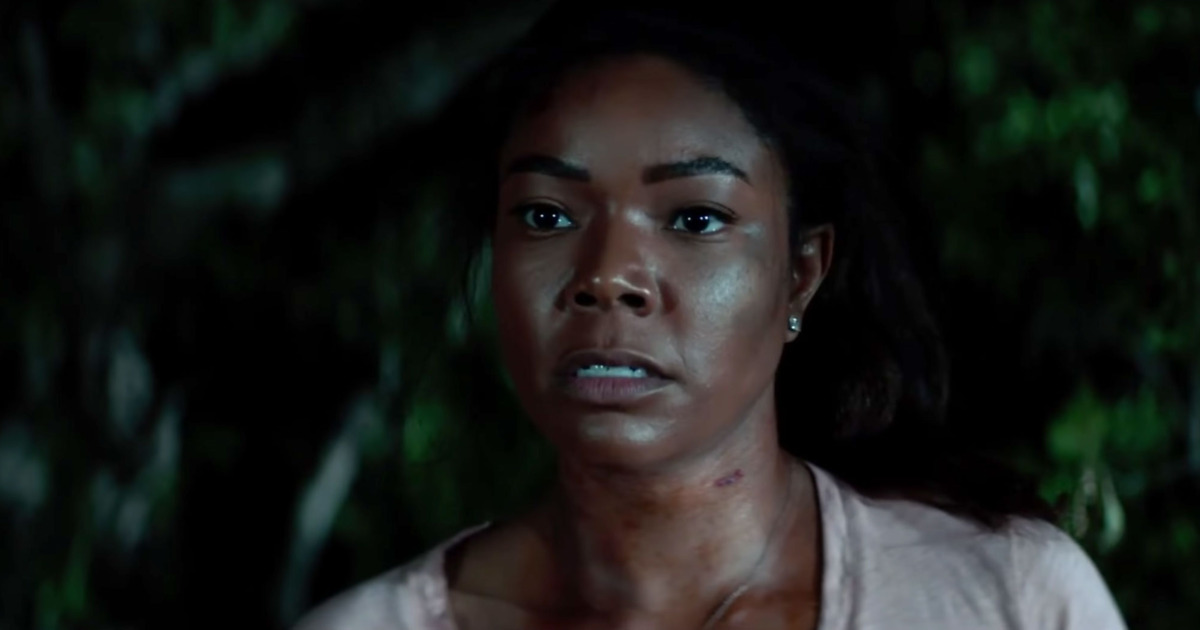Memorial Day weekend and The Walt Disney Company haven’t been on the greatest of terms as of late, delivering subpar grosses for the likes of last year’s Pirates of the Caribbean: Dead Men Tell No Tales ($62.98m 3-day/$78.48m 4-day), 2016’s Alice Through the Looking Glass ($26.86m 3-day/$33.51m 4-day), and 2015’s Tomorrowland ($33.03m 3-day/$42.68m 4-day). This year’s entry in Disney’s ever-growing list is Solo: A Star Wars Story.
Opening in first, the Ron Howard-helmed Solo: A Star Wars Story earned an lackluster $84.75m from 4,381 venues ($19,345 per-theatre average). Disney’s 4-day estimate is $103m. Those aren’t generally terrible figures, no, but they’re pretty terrible for a Star Wars movie that cost upwards of $250m just to produce – there aren’t official numbers (some say it’s closer to $300m), but there’s a likely chance that Solo’s the priciest Star Wars to date. These numbers seem worse off when comparing Solo to its fellow neo-Star Wars entries: 2015’s Star Wars: The Force Awakens ($247.97m debut), 2016’s Rogue One: A Star Wars Story ($155.08m), and last December’s Star Wars: The Last Jedi ($220.01m). It’s a notable concern that Solo’s 3-day dipped -61.5% from Last Jedi’s opening, whereas Rogue One was off -37.5% from Force Awakens.

The latest Star Wars Story’s failure – yes, this is probably losing money – can be attributed to a number of things, but there are a glaring two; first, Solo sought to fill a non-existent narrative gap, unlike Rogue One, which sported a compelling premise (how the Rebellion acquired the plans to the Death Star, although you knew this already), and second, Solo was slated to release just five months after The Last Jedi, unlike Rogue One, which had a year after The Force Awakens (plus the whole “Star Wars is back!” shine) to market itself and generate buzz. We didn’t even see a teaser for Solo until February. I’d also argue that Han Solo as a character isn’t very interesting, but Harrison Ford as Han Solo is, and that’s what people took to. Despite positive notices for Alden Ehrenreich’s performance, Solo doesn’t strike one as a cultural figure with the casting versatility of, say, James Bond.
Let’s talk about that short gap from The Last Jedi, though. If there’s any suggestion Disney/Lucasfilm can take from Solo’s performance, it’s that Star Wars isn’t the kind of franchise that can sustain 2+ movies a year ala Marvel. Much of Star Wars’ appeal lies in its event factor and it’s obvious that over-saturating the market causes significant decline in interest (I predicted a quite wrong $130m 3-day). It might be different if we were to get something like an Old Republic-era movie and a more traditional Star Wars each year instead of the original trilogy nostalgia Lucasfilm has rest its laurels on, but that remains to be seen. And yes, there’s a good chance the polarizing reception to Last Jedi put off a few fans from rushing out. Regarding Solo’s endgame, if it follows The Last Jedi (2.82x multiple) we’re looking at $239m. If Solo follows the average performance of Disney’s aforementioned Memorial Day underperformers, it gets $238m. Disappointing, since the movie’s apparently not bad, despite its well-publicized production troubles.
International grosses weren’t much better for Solo – the film earned $68.2m from 54 markets (88% of its overseas footprint) for a $171.2m global haul. This pales in comparison to Rogue One, which (thanks to Deadline for this rundown) grossed $178m in the same markets at current rates. China continued to show large disinterest in the Star Wars franchise as Solo (titled Ranger Solo to avoid a direct Star Wars connection) opened to $10.1m vs. Last Jedi’s also disappointing $28.14m debut. Aside from China, top debuts for Solo landed in the U.K. ($10.3m), Australia ($5m), Germany ($4.3m), France ($3.9m), and Russia ($3.6m).

Falling to second, Fox’s Deadpool 2 declined a sharp -65.4% to gross $43.45m in its sophomore frame. Deadpool 2 made an estimated $55m over the 4-day weekend for a $219.71m domestic cume, playing -7.2% behind the first Deadpool at the same point in release. A steep fall for Deadpool 2 was expected, given the direct competition with Solo, but it’s still not a great thing. Luckily, it’s relatively smooth sailing from here until Warner Bros.’ Ocean’s 8 hits on June 8th. Should Deadpool 2 maintain its pace behind the first film, it’s targeting a $337m final tally, but it wouldn’t be surprising if the sequel comes in just below $300m. That being said, bear in mind this cost $110m to make (cheap for the genre), so it’s still a big success.
Overseas, Deadpool 2 nabbed another $57m from 81 markets. While that’s a -68% decline from its debut weekend (a record-setting one for Fox International), Mr. Wilson and company are doing just fine with $279.74m internationally and $499.45m globally. Top markets for Deadpool 2 are the U.K. ($28.4m), South Korea ($27.1m), Australia ($18.6m), Mexico ($15.9m), and France ($14.8m).

While Solo isn’t doing many favours for Disney, Marvel’s Avengers: Infinity War sure is. Infinity War grossed an additional $17.44m (-40.8%) over the 3-day weekend and $21.25m over the 4-day. Domestic cume is a mighty $626.44m, eclipsing the first Avengers ($623.36m). Speaking of, Infinity War is pacing +11.8% ahead of that film at the same point in release, suggesting a final total just over/under $700m. We’ll see if it can surpass this February’s Black Panther, which has tallied $698.7m and will probably see a push to get it over $700m.
Internationally, Avengers grossed $32.5m from 36 markets for a $1.283 billion cume. Global is a mammoth $1.909 billion and $2 billion isn’t too far off now. In China, Infinity War has now totaled $336.8m, becoming the third-highest grossing Hollywood release in the nation. Top markets outside China are South Korea ($91.5m), the U.K. ($90.3m), Brazil ($62.8m), Mexico ($58.8m), and India ($42.73m, pending update).

In fourth, Paramount’s counter-programmer Book Club eased a light -25.8% in its second weekend, collecting $10.08m over the 3-day weekend and $12.5m over the 4-day. Domestic total is $34.88m, solid for the $10m production. Book Club’s providing a decent alternative for those who aren’t too invested in the big-budget summertime blitz and ought to play nicely over the coming weeks.
There are no international numbers to report for Book Club.
Rounding out the top five, Warner Bros.’ Melissa McCarthy comedy Life of the Party held rather well over the Memorial Day frame, grossing $5.34m (-29.8%) over the 3-day weekend and $6.94m over the 4-day for a $40.92m domestic tally. Life of the Party’s still on track to be McCarthy’s lowest-grossing film as a lead, but it should make somewhere over $50m when all’s said and done, which isn’t godawful for a low-$30m flick.
No international updates for Life of the Party, but the movie’s made $5.9m from 6 markets, led by Australia ($2.5m) and the U.K. ($1.5m). Global total is $46.82m.
HOLDOVERS

6. Breaking In (Universal) – $4.28 million (-37.3%), $5.72 million (4-day), $37.31m cume
7. Show Dogs (Global Road) – $3.27 million (-45.8%), $4.57 million (4-day), $12.16m cume
8. Overboard (Pantelion) – $3.17 million (-31.4%), $4.3 million (4-day), $42.79m cume
9. A Quiet Place (Paramount) – $2.42 million (-38.8%), $3 million (4-day), $180.76m cume
10. RBG (Magnolia) – $1.26 million (+0.6%), $1.56 million (4-day), $6.08m cume
Some of the coverage you find on Cultured Vultures contains affiliate links, which provide us with small commissions based on purchases made from visiting our site. We cover gaming news, movie reviews, wrestling and much more.




